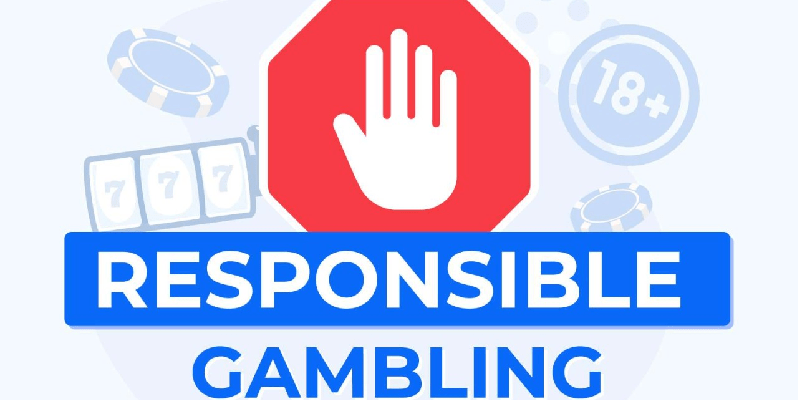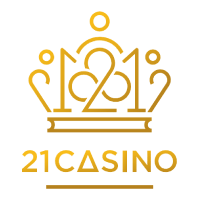Responsible Gambling

Introduction
To keep gambling a light-hearted pastime free of harmful outcomes, practicing responsible gambling is essential. Learning to control one's gambling requires an awareness of the dangers, the establishment of limits, and the recognition of when assistance is needed. This comprehensive guide delves into the topic of responsible gambling, covering its concepts, tactics for self-regulation, and helpful resources.
How Can I Play It Safe When Gambling?
The term "responsible gambling" describes an approach to gambling that is both balanced and aimed at preventing harm from gambling. As long as it doesn't become a destructive or compulsive habit, gambling can stay a fun and interesting pastime.
Essential Guidelines for Conscientious Gambling
Comprehending the Dangers of Gambling
Identify the dangers of gambling, such as the chance of losing money and the onset of gambling-related issues.
As an example, know that losing money is an inevitable component of gambling and that there are no surefire ways to win.
Determining Scope
Get a handle on how much time and money you can afford to spend gaming so you don't go overboard.
As an example, decide how much money you will spend each week on gaming and adhere to it no matter what happens.
Having Fun with Gambling
A better approach to look at gambling is as a pastime, not a means to an end (making money).
Take gambling as an example; you should think of your losses as just another cost of amusement.
Steering Clear of Losses
What this means is that you shouldn't try to win back your losses by gambling more or betting more. Losses and issues may increase as a result of this conduct.
For instance, if you lose money, it's best to step back and not keep trying to earn it all back.
Being Self-Aware and Reflective
In order to keep your gambling under control, it is important to regularly evaluate your behaviour and be truthful with yourself about it.
As an example, it's a good idea to assess your gambling habits on a regular basis and make any necessary adjustments to stay under control.
Asking for Assist When Necessary
Identify the warning signals of compulsive gambling and get assistance from a trained expert if you need it.
For instance, get help from professionals or support groups if you see that gambling is having a negative impact on your life or finances.
Methods for Moderate Gambling
Establishing Budgetary Boundaries
Planning ahead: Set a limit for yourself on how much money you can afford to spend on gambling every week or month, and stick to it.
You may manage the amount you can add to your account at several online casinos by setting deposit limitations.
Put a cap of $200 per month on your gambling spending and stick to it.
Efficiently Utilising Time
Put a time limit on your gambling and set an alarm or timer to go off when you've spent too much time.
Do not let your gambling sessions go on for too long by taking frequent pauses.
Take a break after an hour of playing, regardless of how far along you are in the game. Just set the timer.
Making Use of Available Resources
You can take a short or long break from gaming using the self-exclusion tools that are available at many casinos.
Remind yourself of the time and money you've spent gambling using features that serve as reality checks.
For instance, you can program a 30-minute reminder to check in with yourself and your gambling session.
Restraint in Gambling On The Spot
Make a firm decision ahead of time about how much time and money you will allocate, and then don't budge from it.
Never use gambling as an excuse to avoid dealing with difficult emotions, such as boredom, tension, or a lack of control over your life.
For instance, instead of gambling when you're feeling pressured, try engaging in other leisure activities.
Gaining Knowledge
Gambling Expertise: Acquire a thorough understanding of the games you play, the odds, and the associated dangers in order to make educated decisions.
Acquiring Knowledge of House Edge: Realise that the odds are always in the casino's favour and that gambling results are completely dependent on luck.
To better comprehend the odds and play by the rules of the games you play, for instance, is a good example.
Recognising Gambling Addiction
Indications of Gambling Addiction
More Time and Money Spent: Gambling consumes more time and money than anticipated.
Putting Off commitments: Gambling causes people to put off their personal, financial, or job commitments.
Distress in Emotions: Worry, tension, or guilt over gambling.
A symptom of problem gambling could be that you spend more time gambling than with your family or doing important work tasks.
Self-Evaluation Resources
Questionnaires: To examine your gaming behaviour, you might use self-assessment tools and questionnaires given by gambling organisations.
If you suspect that your gambling habits may be causing you problems, you can take the Gamblers Anonymous self-assessment questionnaire.
Seeking Assistance from Experts
Therapy: Talk to a registered mental health professional who focusses on helping people overcome gambling addiction.
For help and support from others going through the same thing, consider joining a support group like Gamblers Anonymous.
To obtain professional help for gambling addiction, you can, for instance, contact a counsellor in your area or go to a Gamblers Anonymous meeting.
Information on Gambling Help Organisations and How to Gamble Responsibly
Individuals impacted by gambling problems can find resources and support through the National Council on Problem Gambling (NCPG).
Meetings and support groups are available through Gamblers Anonymous (GA) for those who are addicted to gambling.
For instance, you can find information and support by visiting the NCPG website or getting in touch with a local GA branch.
Gaming Resources for the Web
You can limit your access to gambling sites by using the self-exclusion options provided by online casinos.
Use smartphone apps that help you control your gambling habits and keep tabs on your expenditure if you're committed to responsible gambling.
Consider using a responsible gambling software to keep track of your wagers and set limits on how much you can afford to lose.
Materials for the Classroom
Resources: Educational resources and hotlines can be accessed online to learn more about responsible gambling.
Seminars and Workshops: Learn about gambling awareness and responsible gambling techniques by attending a seminar or workshop.
To learn more about responsible gambling, you can, for instance, participate in webinars or workshops offered by organisations that support gaming online.
Finally, in order to keep gambling a healthy and entertaining pastime, it is crucial to gamble responsibly. Maintaining gambling as a leisure activity requires knowledge of the risks, the establishment of limits, and the use of available resources. It is critical to get assistance and support in order to effectively manage gambling if you ever notice that it's becoming a problem. Always keep in mind that being a responsible gambler means maintaining a healthy equilibrium, being self-aware, and knowing when to ask for help.








